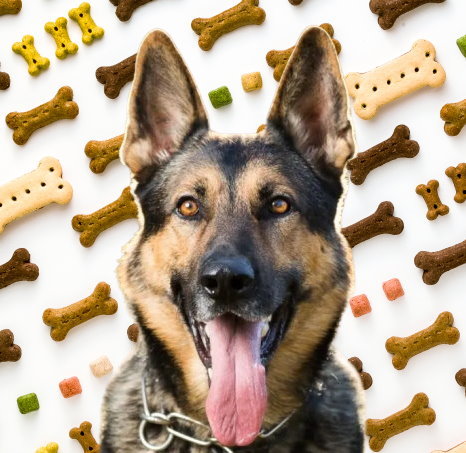Welcome to Dog Training Newbies !
Welcome to Dog Training Newbies !

German Shepherds, known for their intelligence and loyalty, can sometimes exhibit noise sensitivity. This sensitivity can manifest as anxiety or fear in response to loud or unexpected sounds, such as thunderstorms, fireworks, or household noises. Understanding and managing noise sensitivity is crucial for ensuring the well-being and comfort of your German Shepherd.
Noise sensitivity in dogs can develop due to various factors, including genetics, lack of exposure, or traumatic experiences. German Shepherds, being highly alert and protective, may be more prone to developing anxiety when faced with unfamiliar or overwhelming sounds. Recognizing the signs of noise sensitivity is the first step in addressing it. Common signs include trembling, pacing, panting, hiding, or attempting to escape.
To effectively manage noise sensitivity, it’s important to create a safe and comforting environment for your dog. Providing a designated quiet space, such as a crate with soft bedding or a cozy corner in the house, can help your German Shepherd feel secure during noisy events. Some dogs benefit from soothing music or white noise machines that mask distressing sounds.
Desensitization is a key technique in reducing noise sensitivity. This involves gradually exposing your dog to the noise in a controlled manner, starting at a low volume and slowly increasing it over time. Pairing the exposure with positive experiences, like treats and play, helps your dog associate the sound with positive outcomes rather than fear. Consistency and patience are crucial during this process.
Counter-conditioning is another effective strategy. This technique involves changing your dog’s emotional response to the noise by associating it with something enjoyable. For example, during a thunderstorm, engage your dog in a favorite game or offer special treats. Over time, your dog may start to associate the noise with positive experiences rather than anxiety.


Training commands such as "relax" or "settle" can be beneficial in managing noise sensitivity. Teaching your German Shepherd to respond to these commands during calm moments helps them learn to relax on cue. Practice these commands regularly, rewarding your dog for calm behavior, so they become accustomed to relaxing in potentially stressful situations.
In some cases, professional help may be necessary. A certified dog trainer or animal behaviorist can offer personalized guidance and strategies to address your German Shepherd’s specific needs. They can help identify triggers and develop a tailored management plan to reduce noise sensitivity effectively.
For severe cases of anxiety, consulting with a veterinarian is important. They may recommend anti-anxiety medications or supplements that can help manage your dog’s symptoms. These should always be used under veterinary supervision and as part of a comprehensive management plan.
Regular exercise and mental stimulation are essential for maintaining your German Shepherd’s overall well-being and reducing anxiety. Providing plenty of physical activity and engaging your dog in interactive games or puzzle toys can help alleviate stress and channel their energy positively.
Finally, remain calm and supportive during noisy events. Dogs often pick up on their owner’s emotions, so maintaining a relaxed demeanor can help reassure your German Shepherd. Avoid punishing or scolding your dog for their reactions, as this can increase anxiety.
In conclusion, noise sensitivity in German Shepherds requires a thoughtful approach combining management techniques and training. By creating a safe environment, using desensitization and counter-conditioning, and seeking professional guidance if needed, you can help your German Shepherd navigate their fears. With patience and consistency, your dog can learn to cope with noise sensitivity, leading to a happier, more relaxed life.